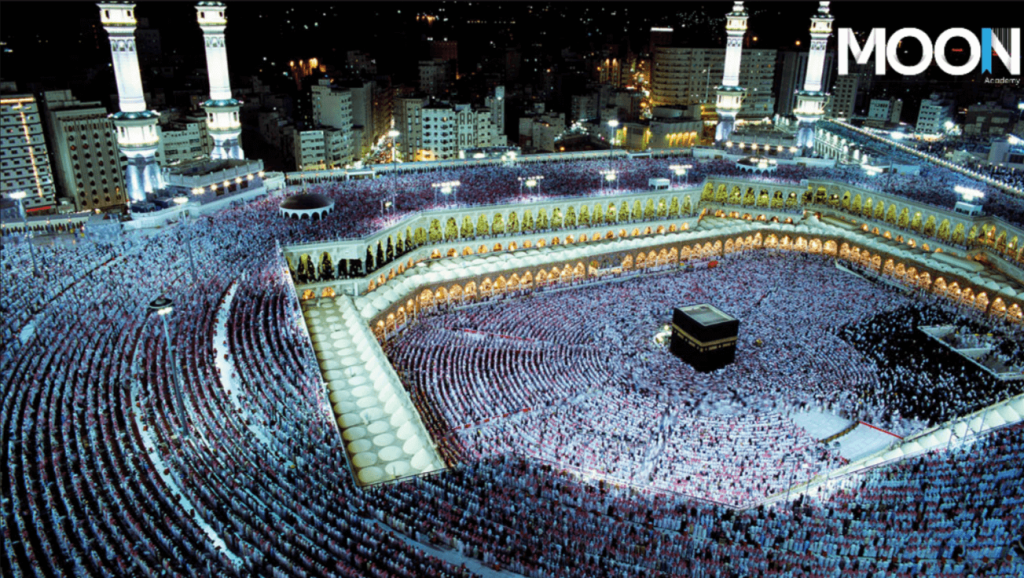Exploring the Significance of Hajj
If someone were to ask, “What is Hajj?” how would you respond? Is it merely one
of the pillars of Islam, or does it hold deeper significance beyond the annual
Muslim pilgrimage to Makkah?
While Hajj undeniably holds a pivotal place in Islam as one of the five pillars, its
importance is sometimes overshadowed. It is an obligatory act to be performed at
least once in a lifetime for those who have the means, in contrast to the other
daily (salat), monthly (Ramadan), or annual (Zakat) pillars of Islam.
In a narration, Abu Hurairah (RA) reports the words of the Messenger of Allah
(SAW):
“O people! Hajj (pilgrimage to the House of Allah) has been made incumbent
upon you, so perform Hajj.” A man asked, “O Messenger of Allah, is it prescribed
every year?” He (SAW) remained silent until the man repeated the question
thrice. Then he (SAW) said, “Had I replied in the affirmative, it would have surely
become obligatory, and you would not have been able to fulfill it.” Afterward, he
said, “Do not ask me so long as I do not impose anything upon you because those
who were before you were destroyed on account of their frequent questioning
and their disagreement with their Prophets.” (Muslim: Riyad as-Salihin 1272)

So, What Exactly is Hajj?
Hajj is an annual pilgrimage to the sacred city of Makkah, taking place from the
8th to the 13th of Dhul Hijjah. It involves the circumambulation (Tawaf) around
the Holy Kaaba and the act of Sa’ee, walking between Mt. Safaa and Mt. Marwa,
which are rituals performed throughout the year in Makkah. However, Hajj
encompasses additional exclusive rituals. Pilgrims commence their Hajj journey by
visiting Mina, Arafat, and Muzdalifah, then proceed to symbolically pelt the
Jamarat, concluding with the final Tawaf and Sa’ee.
Abdur-Rahman bin Yamur shares a hadith regarding the essence of Hajj:
“I saw the Messenger of Allah (SAW) when people came to him and asked him
about Hajj. The Messenger of Allah (SAW) said: ‘Hajj is Arafat. Whoever catches up
with the night of Arafat before dawn comes on the night of Jam (Al-Muzdalifah),
his Hajj is complete.'” (Sunan an-Nasa’i 3016)
Historical Significance
Muslims believe that the construction of the sacred Kaaba dates back to the time
of Adam (AS). Subsequently, the Kaaba was destroyed during the era of Prophet
Nuh (AS) amidst the great flood. Prophet Ibrahim (AS) and his son Ismail (AS)
undertook the task of its reconstruction. The rituals observed during Hajj and
Umrah are a tribute to the actions of Ibrahim (AS) and his family, including Ismail
(AS) and his mother, Hajar (RAA).
How Many Times Did the Prophet (SAW) Perform Hajj?
The Prophet Muhammad (SAW) performed Hajj once in his lifetime. This particular
Hajj is known as Hajjat ul-Wida and took place in the 10th year after the Hijrah (10
AH) when he was 61 years old. He passed away the following year.
10th of Dhul Hijjah – Eid Al-Adha
Uqbah bin Amir narrates the words of the Messenger of Allah (SAW):
“The Day of Arafah, the Day of Nahr (Sacrifice), and the Days of Tashriq are Eid for
us. They are the days of eating and drinking.” (Jami at-Tirmidhi 773)
Eid Al-Adha is celebrated globally by Muslims as they offer sacrifices and
distribute a portion to those in need. Those who have embarked on the obligatory
Hajj pilgrimage conclude their rituals by stoning the Jamarat, making their
sacrifice (hiya/Qurbani), and trimming their hair (removing ihram). In Makkah, on
the 10th of Dhul Hijjah, it’s a day of celebration, marked by the hope for an
accepted Hajj, which carries the reward of complete forgiveness.
The Rewards of Hajj
Hajj, as we know, is a fundamental pillar of Islam, and like other fundamental acts,
it carries great rewards. Just as daily prayers (salat) hold immense significance,
Hajj also offers substantial spiritual benefits and blessings to those who undertake
this sacred journey.


